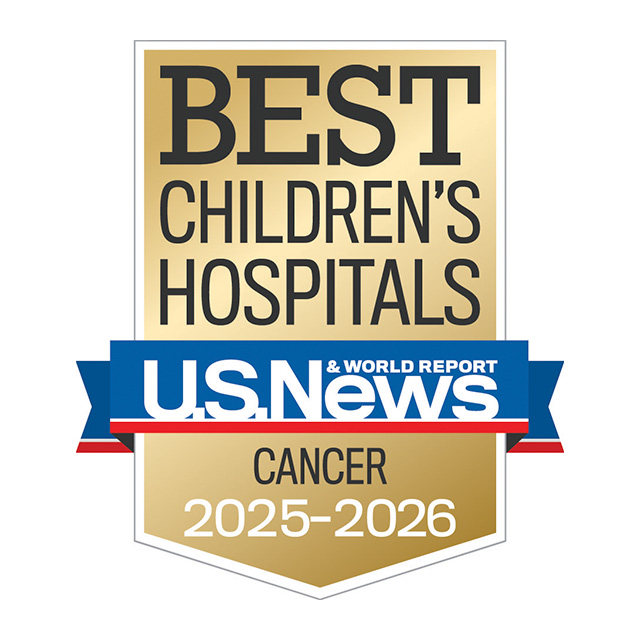Top 50 national program for 14 consecutive years.
Pediatric Cancer and Blood Disorders


Hope for every child
Your child is more than their diagnosis. At Corewell Health Helen DeVos Children’s Hospital, our pediatric oncology and hematology team delivers personalized care. Our Ethie Haworth Children’s Cancer Center is nationally recognized for excellence and innovation with its access to the latest treatments, the region’s only blood and bone marrow transplant program, dozens of clinical trials, and more.
Beyond advanced medical care, our kid-friendly support services ensure every child and family feels seen, supported, and empowered during their journey. Your child will have access to child life specialists, teachers and school support, art and music therapy, and many other dedicated programs, resources, and volunteers.
National and regional recognition
Conditions we treat
We treat a wide range of conditions, including:
Treatments and services we provide
We offer a wide variety of leading-edge treatments for pediatric cancers and blood disorders, including:
Adolescent & Young Adult (AYA) Cancer Program
Made possible by a generous gift from Dick and Ethie Haworth, the AYA Cancer Program supports cancer patients and survivors as they transition to adulthood, up through age 39. A wide range of clinical and psychosocial services are available, including:
- Adolescent and young adult life specialists
- Career mentoring
- Clinical trials
- Educational support
- Emotional support
- Fertility preservation, including ovarian tissue and testicular cryopreservation for pre- and post-puberty patients
- Long-term follow-up and survivorship care
- Mental health and wellness services
Pediatric Oncology Resource Team (P.O.R.T.)
P.O.R.T. provides a support system for families with children diagnosed with cancer or a life-threatening blood disorder so they can focus on taking care of their child. Services include:

Respite volunteers
Volunteers sit with children in the hospital so parents can meet with doctors, tend to other work and family responsibilities, or just take a needed break.
Other services
We support families with care and comfort through new patient and sibling care bags, a family snack pantry, caregiver meal passes, an inpatient laundry room, dream rooms for bone marrow transplant patients, and engaging family activities.
Strengthen P.O.R.T.’s lifeline of support
P.O.R.T. is staffed, run, and supplied by community volunteers who donate their time, energy, skills, and finances to make hospital stays a little brighter and more joyful for families in need. If you are interested in getting involved, reach out to the P.O.R.T. coordinator or make a donation.
Contact the P.O.R.T. coordinator
Email melissa.wittlinger@helendevoschildrens.org to learn more.
Related services
Explore our locations
Find a specialist
Get the support your child needs.




